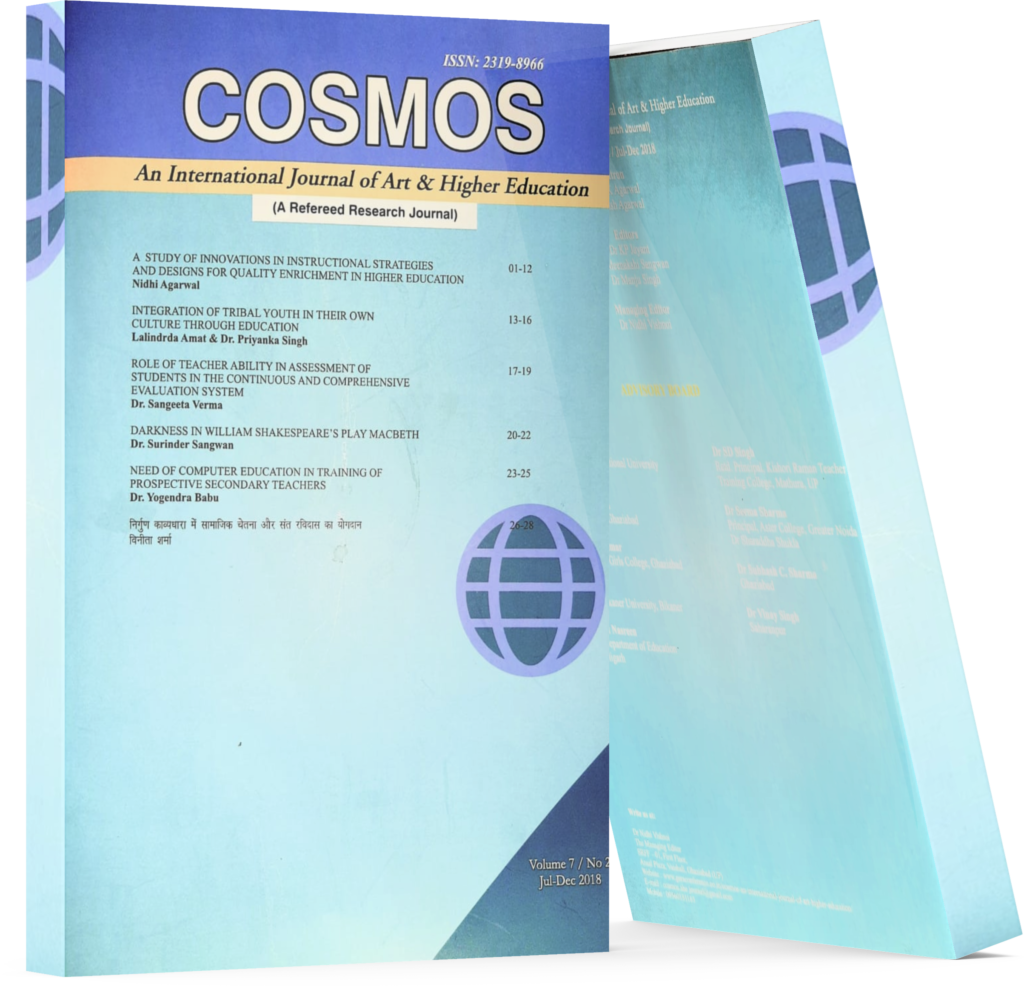The Filipino Child Leadership Theory
Keywords:
Early Childhood Education, Leadership Qualities, Young Children, Kindergarten Teachers, Leadership Theory, Focus Group Discussion.Abstract
Background and Objective: Developing leadership skills in the early years remain an abstract concept inthe Philippine classroom setting. With the wide application of collaborative and cooperative learninginschool settings, it becomes increasingly important to understand the mechanisms by which children developthe skills and knowledge to work productively with others. Research ensures the possibility of thedevelopment of leadership qualities of students by creating different opportunities at schools, thus paper offers a framework on how early childhood classroom teachers could recognize child leadership. Methods and Findings: The primary aim of this paper is to share valuable literature on young Filipinochildren's emerging leadership skills. Focus Group Discussion was conducted to ten (10) private school teachers to gather initial information on teacher; perception of child leadership. Prevalent child leadershipcharacteristics that emerged are sought out by peers; responsible; empathetic; communicates well; andcollaborative. From the descriptors, the Filipino Child Leadership Theory* was created. The theory was designed to fill the gap in the literature on the importance of recognizing and enhancing leadership skills among Filipino young children.
Conclusion: The Filipino Child Leadership Theory would be beneficial in the identification and enhancement of emerging leadership traits among young children in the classroom setting. The theory validates the teacher’ child leadership recognition and perception.
Downloads
References
Cansoy, R., (2017). The Effectiveness of
Leadership Skills Development Program for
University Students. Journal of History
Culture and Art Research, 6(3), 65-87. doi:http://dx.doi.org/10.7596/taksad.v6i3.899
Cimene, F. T. A., & Aladano, A. N., (2013). Leadership Perspective from the
Philippines: Its Implications for Theory, Research and Practice. Culture and Gender in
Leadership, 48–63.
Department of Education, Kindergarten
Curriculum Guide https://www.deped.gov.ph/
wp-content/uploads/2019/01/Kinder-
Fox, D., Flynn, L. & Austin, P., (2015). Child
Leadership: Teachers' Perceptions and
Influences. Childhood Education, 91(3), 163- 168. 5. Ilac, E.J., (2014). What Makes a Filipino
leader? first published in the Business
Section of the Philippine Daily Inquirer
(January 30, 2011). http://business.inquirer.net/money/
topstories/view/20110130-317556/What- makes-a-Filipino-leader
Miles and Huberman, (1984). Qualitative
Data Analysis: A sourcebook of new methods. Sage Publications.
Zembat, R. and Arslan, H., (2015). Pre- School Leadership Decision Making, Problem
Solving, Conflict Management and
Communication, Every Direction in Pre- School Education-10. Ankara: Hedef CS.
Kar, Sonashree and Pradhan, Dr. Anup, (2017). “Education of Girl Child in Rural
India; Key Challenges”. Globus An
International Journal of Management & IT, 9
(1) : 1-4.
Agarwal, Nidhi and Kumar, Puneet, (2009). “Reflection on The New Innovations for
Maximizing The Learning in Teacher oFMathematics”. International JournalEducational Herald, 38(2):41, ISSN: 0974- 0732.
Konwar, Sulekha and Maitra, Purabi, (2015). “A Study on Swami Vivekananda ReligiousThoughts of Teachings and Philosophy”. Globus Journal of Progressive Education, 5(1) : 1-3.
Agarwal, Nidhi, (2018). “A Study of, Innovations in Instructional Strategies andDesigns for Quality Enrichment in Higher
Education”. Cosmos An International Journal
of Art & Higher Education, 7 (2) : 1-12.
Amat, Lalindrda and Singh, Dr. Priyanka, (2018). “Integration Of Tribal Youth In The Own Culture Through Education”. Cosmos An International Journal of Art & HigherEducation, 7 (2) : 13-16.
Verma, Dr. Sangeeta, (2018). “Role of
(2017). “Education of Girl Child in Rural
Teacher Ability in Assessment of Students in
India; Key Challenges”. Globus An
the Continuous and Comprehensive
International Journal of Management & IT, 9
Evaluation System”. Cosmos An International (1) : 1-4.
Journal of Art & Higher Education, 7 (2) : 17- 19.

